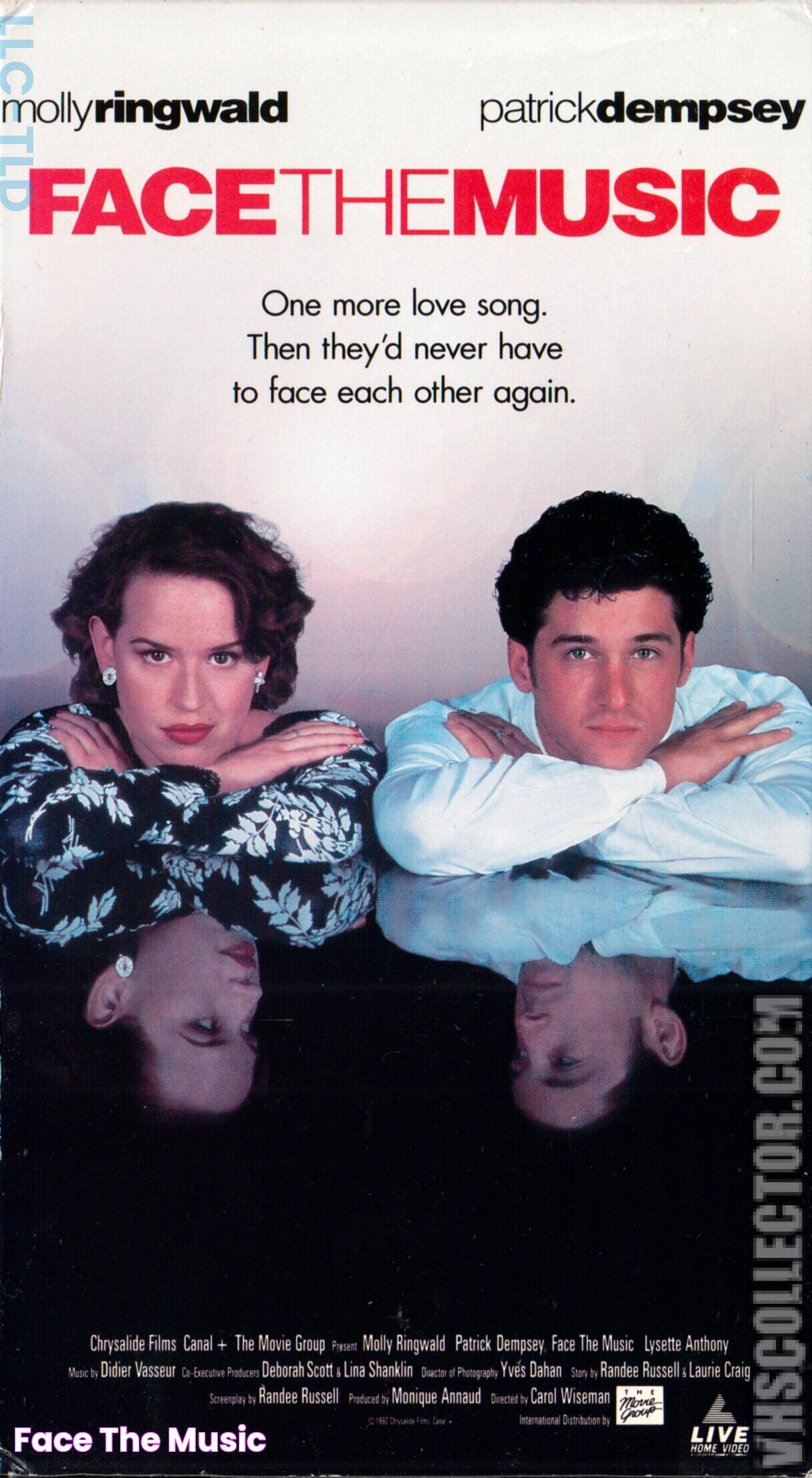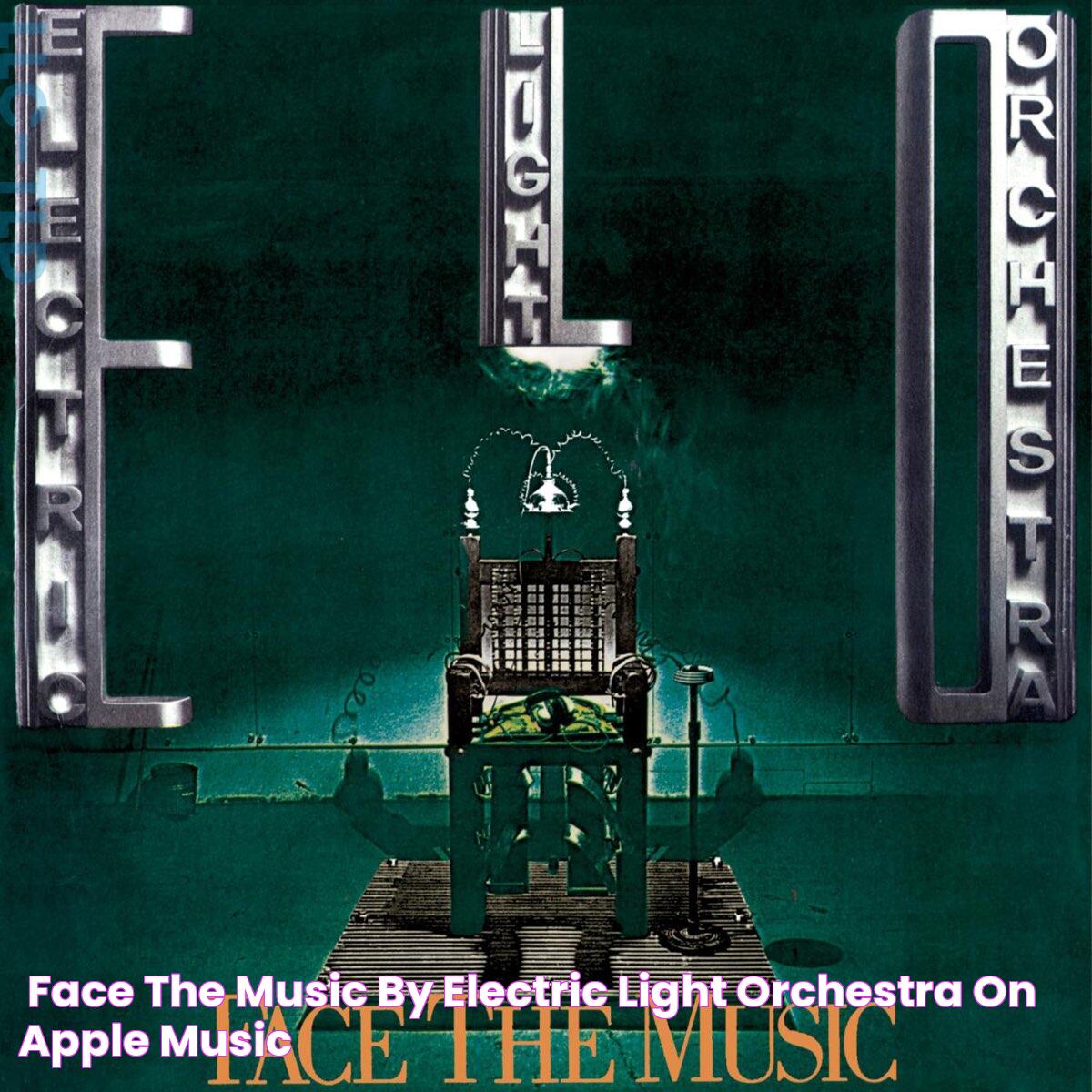In life, there are moments when we must confront the consequences of our actions and decisions. This is often referred to as having to "face the music." This idiom, which has its roots in the world of theater, serves as a poignant reminder of the importance of accountability and responsibility. While it may be daunting to embrace the challenges that come our way, doing so can lead to personal growth and a deeper understanding of ourselves and the world around us.
Facing the music is not just about dealing with negative outcomes; it's also about recognizing opportunities for improvement and transformation. It's about being honest with oneself and others, and acknowledging that mistakes are a part of life. By facing the music, we can learn valuable lessons that pave the way for future success and fulfillment. In this article, we will explore the various facets of facing the music, providing insights into how this concept can be applied in different areas of life.
Whether you're dealing with personal challenges, professional setbacks, or societal issues, the ability to face the music is a crucial skill. It requires courage, resilience, and a willingness to learn from past experiences. By understanding the significance of facing the music, we can develop strategies to tackle obstacles head-on and emerge stronger on the other side. Join us as we delve into this powerful concept and discover how it can empower us to lead more authentic and meaningful lives.
Read also:The Remarkable Life Of Nipsey Hussles Wife An Inspiring Tale
Table of Contents
- Origin of "Face the Music"
- Importance of Accountability
- Personal Growth Through Adversity
- How Can We Learn From Mistakes?
- The Role of Resilience in Facing the Music
- The Impact of Facing the Music on Relationships
- How Does Facing the Music Apply to Professional Life?
- Societal Implications of Facing the Music
- Strategies for Facing the Music Effectively
- Can Facing the Music Lead to Success?
- Examples of Facing the Music in History
- Artistic Representations of Facing the Music
- How Can Technology Help Us Face the Music?
- Frequently Asked Questions
- Conclusion
Origin of "Face the Music"
The phrase "face the music" is believed to have originated from the world of theater, where actors would literally face the orchestra pit during performances. It was a moment of truth, when they had to deliver their lines and songs in front of an audience. Over time, this expression evolved to signify confronting any situation where one must accept responsibility for their actions.
Another theory suggests that the term comes from the military, where disgraced officers were drummed out of their regiment to the sound of military music. Regardless of its origin, the phrase encapsulates the idea of confronting reality, no matter how challenging it may be. It emphasizes the importance of accepting the consequences of one's actions and moving forward with integrity.
Importance of Accountability
Accountability is a cornerstone of facing the music. It involves taking ownership of one's actions and their outcomes. By being accountable, individuals demonstrate maturity, honesty, and a commitment to growth. This not only builds trust with others but also fosters self-respect and confidence.
In various aspects of life, accountability plays a key role in personal and professional development. Whether it's admitting a mistake at work or acknowledging a personal shortcoming, being accountable can lead to constructive change. It allows individuals to learn from their experiences and make informed decisions in the future.
Personal Growth Through Adversity
Facing the music often involves dealing with adversity, which can be a powerful catalyst for personal growth. Adversity challenges individuals to step out of their comfort zones, develop new skills, and build resilience. By embracing difficulties and learning from them, people can transform setbacks into opportunities for self-improvement.
When individuals face the music, they gain a deeper understanding of their strengths and weaknesses. This self-awareness is crucial for personal development, as it helps individuals to set realistic goals and work towards achieving them. Moreover, overcoming adversity can boost self-confidence and empower individuals to tackle future challenges with greater ease.
Read also:Mastering The Art Of Asap Staffing Ultimate Guide For Success In Recruitment
How Can We Learn From Mistakes?
Mistakes are an inevitable part of life, but they also offer valuable learning opportunities. To effectively learn from mistakes, individuals must first acknowledge them and take responsibility. This involves analyzing what went wrong and identifying areas for improvement.
Learning from mistakes requires an open mind and a willingness to change. By reflecting on past experiences, individuals can gain insights into their behavior and decision-making processes. This knowledge can then be used to make better choices in the future and avoid repeating the same errors.
The Role of Resilience in Facing the Music
Resilience is the ability to bounce back from adversity and continue moving forward. It is a vital component of facing the music, as it enables individuals to navigate difficult situations with courage and determination. Resilient individuals are better equipped to handle setbacks and view challenges as opportunities for growth.
Building resilience involves developing a positive mindset, maintaining strong support networks, and practicing self-care. By cultivating these qualities, individuals can enhance their ability to face the music and emerge stronger on the other side.
The Impact of Facing the Music on Relationships
Facing the music can have a profound impact on relationships, both personal and professional. When individuals take responsibility for their actions, they demonstrate honesty and integrity, which can strengthen trust and communication with others.
In personal relationships, facing the music can lead to deeper connections and mutual understanding. It allows individuals to address conflicts openly and work towards resolving them. In professional settings, accountability and transparency can enhance teamwork and collaboration, leading to more productive and harmonious work environments.
How Does Facing the Music Apply to Professional Life?
In the workplace, facing the music involves acknowledging mistakes, taking responsibility, and learning from them. This approach can lead to improved performance and career advancement. Employers value employees who are accountable and willing to grow from their experiences.
Facing the music in a professional setting also involves being open to feedback and using it constructively. By embracing criticism and using it as a tool for improvement, individuals can enhance their skills and contribute more effectively to their organizations.
Societal Implications of Facing the Music
On a broader scale, facing the music has important societal implications. It encourages individuals and institutions to act with integrity and accountability, which can lead to positive social change. By taking responsibility for their actions, people can contribute to a more just and equitable society.
In the context of social issues, facing the music involves acknowledging systemic problems and working towards solutions. This requires collaboration and a commitment to change, as well as a willingness to confront uncomfortable truths.
Strategies for Facing the Music Effectively
To face the music effectively, individuals can employ several strategies:
- Acknowledge the situation: Accept the reality of the circumstances and take responsibility for your actions.
- Reflect and learn: Analyze the situation to identify lessons and areas for improvement.
- Seek support: Reach out to friends, family, or professionals for guidance and encouragement.
- Develop a plan: Create actionable steps to address the situation and prevent future issues.
- Stay positive: Maintain a hopeful outlook and focus on the potential for growth and change.
Can Facing the Music Lead to Success?
Indeed, facing the music can be a pathway to success. By taking responsibility and learning from experiences, individuals can develop resilience, confidence, and problem-solving skills. These qualities are essential for achieving personal and professional goals.
Success often requires navigating challenges and setbacks, and those who are willing to face the music are better prepared to overcome obstacles. By embracing accountability and growth, individuals can unlock their full potential and achieve lasting success.
Examples of Facing the Music in History
Throughout history, there have been numerous examples of individuals who have faced the music and emerged stronger. These stories serve as powerful reminders of the importance of accountability and resilience.
One such example is Mahatma Gandhi, who faced the music by advocating for nonviolent resistance against colonial rule. His commitment to accountability and integrity inspired millions and led to significant social and political change.
Artistic Representations of Facing the Music
The concept of facing the music has been explored in various forms of art, including literature, film, and music. These artistic representations provide insights into the human experience and the challenges of confronting reality.
In literature, characters often face the music by confronting their fears and overcoming personal obstacles. In films, protagonists may struggle with moral dilemmas and ultimately take responsibility for their actions. Music, too, often addresses themes of accountability and redemption, resonating with audiences on a deep emotional level.
How Can Technology Help Us Face the Music?
Technology can play a significant role in helping individuals face the music. Digital tools and platforms offer new ways to communicate, reflect, and learn from experiences. They can facilitate self-assessment, goal setting, and progress tracking, empowering individuals to take charge of their personal and professional development.
Additionally, technology provides access to resources and support networks, enabling individuals to connect with others who can offer guidance and encouragement. By leveraging technology, people can enhance their ability to face the music and achieve their goals.
Frequently Asked Questions
1. What does "face the music" mean?
The phrase "face the music" means to confront the consequences of one's actions and take responsibility for them.
2. Why is it important to face the music?
Facing the music is important because it promotes accountability, personal growth, and resilience. It helps individuals learn from their experiences and make informed decisions in the future.
3. How can I build resilience to face the music?
Building resilience involves developing a positive mindset, maintaining strong support networks, and practicing self-care. These qualities enhance one's ability to navigate challenges and embrace growth opportunities.
4. Can facing the music improve relationships?
Yes, facing the music can strengthen relationships by fostering trust, communication, and mutual understanding. It allows individuals to address conflicts openly and work towards resolving them.
5. How does facing the music apply to professional life?
In professional settings, facing the music involves acknowledging mistakes, taking responsibility, and using feedback constructively. This approach can lead to improved performance and career advancement.
6. What are some strategies for facing the music effectively?
Effective strategies for facing the music include acknowledging the situation, reflecting and learning, seeking support, developing a plan, and maintaining a positive outlook.
Conclusion
In conclusion, facing the music is a vital aspect of personal and professional development. By embracing accountability and resilience, individuals can navigate challenges with confidence and emerge stronger on the other side. Whether in personal relationships, professional settings, or societal contexts, the ability to face the music empowers individuals to lead more authentic and meaningful lives. By understanding the significance of this concept and applying it in various areas of life, we can unlock our full potential and achieve lasting success.

